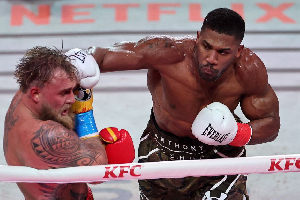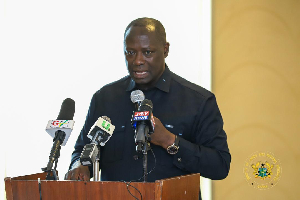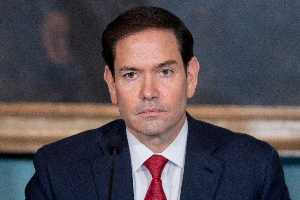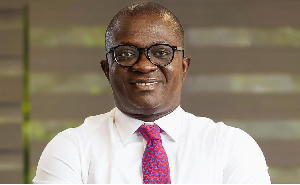As parliament debates the National Reconciliation Bill, some members of the Minority Party in Parliament are demanding that the period covered by the project should be extended to cover the tenure of all Ghanaian governments since independence. On the surface, such a demand sounds FAIR and JUST but what we must ask ourselves is: Is it necessary to do that?
Why it is not necessary to extend the period.
1. If the extension is granted, the exercise could be very expensive and prolonged. We must understand that even some of the minority members in parliament have argued against the amount of money to be expended on the relatively short period the original bill is scheduled to cover. If the extension is granted, the reconciliation exercise could be prolonged to the extent that it might either have to be done hurriedly and hence poorly, or if done right, could extend beyond the remaining three-year period left of NPP's rule. We are aware no government would want that to happen. So are the calls for extension being made to clandestinely dilute the process, make it unpopular or score political points?
2. One may argue that it would be better to spend the needed time and money to ensure that the Reconciliation exercise is done well than to complete the project on time and do it all over again. This is true but we must again ask ourselves this question: Do we have a pressing need to examine the actions of governments who ruled Ghana prior to June 4 1989? I would say NO. I think that most previous Ghanaian governments and military regimes have had their tenure of office either investigated by commissions of inquiry or tried by courts and tribunals established by preceding governments. As a matter of fact, the June 4th and PNDC governments tried and executed many former officers and ex-government officials. They set up tribunals to try and then punish many of the leaders extending right down to Brigadier A. A. Afrifa whose military government toppled Kwame Nkrumah’s CPP government. One can partly reason that, the June 4th movement brought closure to some of the lingering problems we carried over in our political struggles from the first military regime till the reign of General Akuffo.
3. I would also argue that our courts are available to any Ghanaian or groups who feel bitter about what happened to them during the reign of any Ghanaian government. We cannot say so to Ghanaians who are currently angry about what happened to them under the June 4 and PNDC regimes. I would therefore suggest that we allow the courts to handle any of the problems (if there are any) we would like the Reconciliation committee to consider under the extension period. Parliament should make a provision for this in the Bill and then focus the Reconciliation project on the period under the June 4 and PNDC era so we can have a safe outlet to some of the pent up feelings of some Ghanaians. We cannot see some Ghanaians hurt and then make laws that prevent them from seeking redress and think all is, and will be well with all Ghanaians.
Why the Reconciliation should cover the PERIOD UNDER JUNE 4 and PNDC governments.
1. As I stated earlier, the summarily executions and instant justice meted out to members of previous regimes and governments, served to punish the officers and to settle all scores so that Ghanaians will start from a clean plate from June 4 1989. We may recall that the June 4th movement and the PNDC government under Jerry John Rawlings, our ex-president, continued to preach accountability. I would therefore argue that we must not obstruct the Reconciliation exercise with calls for extensions. We must remember that to date the acts of officers who served the country under the June 4th movement and the PNDC regime are entrenched in the Constitution and no Ghanaian government or citizen can hold any of the officers responsible for what occurred under their tenure of office. This protection has not been extended to cover any former Ghanaian ruler or public official who served Ghana under any previous government. Thus, any aggrieved Ghanaian who today feels that he was unfairly punished or harmed under for example, General Kutu Akyeampong's government or Nkrumah's CPP government can take the case to court to seek redress and even claim compensation. This right does not exist for Ghanaians who suffered under the JUNE 4 / PNDC regimes. Why must it be so? It is so because our constitution has said so. Do we really think the entrenched provisions that make it almost impossible for Ghanaians to seek retributions for acts committed under June 4 and PNDC regimes bring closure to the pain and sufferings of those Ghanaians affected? I do not think so for there would not have been any need for the entrenched provisions.2. To me, the mere existence of the entrenched provisions indicates that the June 4/PNDC regimes have a lot of skeletons in their wardrobes. The provisions partly insult the sensibilities of well-meaning Ghanaians. This I hope members of the NDC know and understand for it is rare for a government to assume power in a civilized society and commit deeds that may be good or bad, then set up and supervise a group to write a constitution that virtually exonerates them from all the deeds. If others would talk about the fact that the Reconciliation could lead to instability, I would say to them that it is rather the ENTRENCHED provisions that makes coups potentially likely and leave Ghana unprotected in the hands of those who would want to seek revenge. In particular, now that the NDC/PNDC officers are out of power and walking the streets as ordinary Ghanaians alongside those whom they harmed or caused to flee the country. To argue that the Reconciliation could spark off instability would tend to suggest that such an instability and chaos would be initiated by ex-members of the June 4 movement, the PNDC and their NDC beneficiaries to cover up bad deeds protected by the ENTRENCHED provisions. My interpretation here could be wrong but so are the cries and fears for retribution and witch hunting from an exercise intended to peacefully reconcile the perpetrator and the aggrieved. Yes we may leave the entrenched portions of the constitution to stand as they are but we must not think the silence over the issue can bring closure to the anger and pain of individuals. Let us not act as if some Ghanaians have more right under our constitution than Ghanaians.
3. I would like to believe that current members of the NDC minority in parliament who are beneficiaries of the June 4th and the PNDC regimes would understand the problem and the pains from the deeds covered and protected by the entrenched provisions of our current Constitution and act in good faith to support the Reconciliation exercise. It is incumbent upon them (and in the spirit of a peaceful Ghana) to work with the NPP government to ensure that the right thing is done for the Reconciliation Bill.
4. To me it should rather be the NDC group rather than the NPP members of parliament who should work hard to ensure that we provide some justification for the entrenched provisions by working to legally bring cases temporarily protected by the provisions to a final closure. They would serve Ghana best if they worked to ensure that the Reconciliation Bill brings final closure to all such acts. This way, the minority NDC members would save Ghana by removing some of the doubts surrounding the most absurd and potentially destabilizing aspect of our current constitution.
5. I do understand the fear of the NDC minority about the Reconciliation project being turned into another witch-hunting exercise. That fear could be genuine, but there is no basis for it, at least not in my opinion. Assuming the fears are true, then what I expect the minority members of parliament would do is for them to take the NPP government by its promise. An exercise intended to reconcile must do exactly that – reconcile but not prosecute -. They can do this by critically reviewing the rules and regulations, including powers intended to be exercised under the Bill. It is not necessary to walk out and refuse to debate the bill because of utterances by the Attorney General. Their duties under the Reconciliation Bill are far greater than the personal antagonism they might have for the minister. Ghanaians expect more from our representatives who, by refusing to engage in the debate, seem to be placing their personal interests above their duties.
6. I am of the opinion that one the greatest harm the NPP government caused Ghanaians was their failure to contest the 1992 elections. By that action, they failed to think about the plight of the ordinary Ghanaians. That boycott gave the ruling NDC a free ride in parliament. The NPP was therefore partly to blame for whatever happened to Ghanaians under the NDC reign between 1992 and 1996. The minority NDC members in parliament today have the same responsibility to protect Ghanaians. We hold them responsible for the passage of a perfect Bill that brings closure to some of our problems and also removes the fear hanging over some ex-members of the June 4 and the PNDC regimes. The minority owes Ghanaians the duty to bring pressure to bear on the NPP so that we achieve good results under the Reconciliation project and they cannot, and must not, fail us. Posterity would not treat them fairly if they fail in what I see as their utmost duty to mother Ghana.
May all those who engage in this debate think first as Ghanaians. God bless Ghana our motherland.














